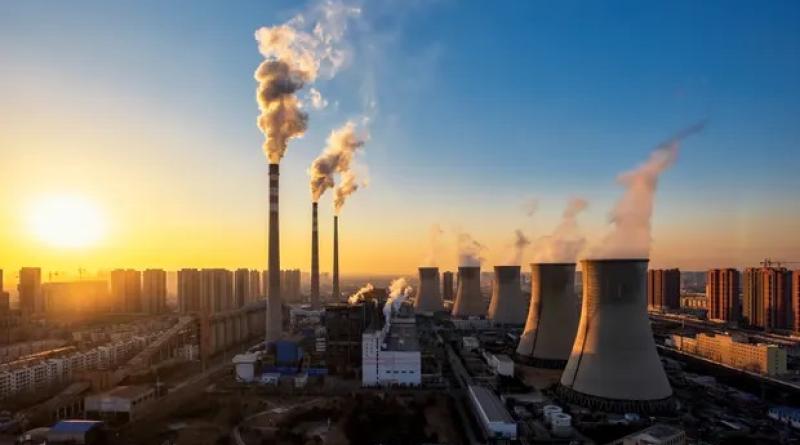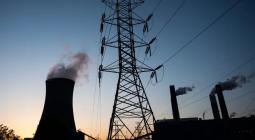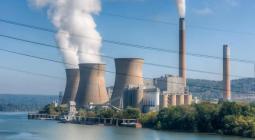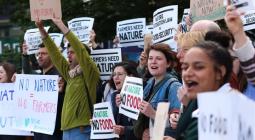Global greenhouse gas emissions at all-time high, study finds

Greenhouse gas emissions have reached an all-time high, threatening to push the world into “unprecedented” levels of global heating, scientists have warned.
The world is rapidly running out of “carbon budget”, the amount of carbon dioxide that can be poured into the atmosphere if we are to stay within the vital threshold of 1.5C above pre-industrial temperatures, according to a study published in the journal Earth System Science Data on Thursday.
Only about 250bn tonnes of carbon dioxide can now be emitted, to avoid the accumulation of CO2 in the atmosphere that would raise temperatures by 1.5C. That is down from 500bn tonnes just a few years ago, and at current annual rates of greenhouse gas emissions, of about 54bn tonnes a year over the past decade, it would run out well before the end of this decade.
Prof Piers Forster, the director of the Priestley Centre for Climate Futures at the University of Leeds, and lead author of the paper, said: “This is the critical decade for climate change. Decisions made now will have an impact on how much temperatures will rise and the degree and severity of impacts we will see as a result.”
He said the rate of annual increase in emissions had slowed down, but far stronger action was needed. “We need to change policy and approaches in light of the latest evidence about the state of the climate system. Time is no longer on our side,” he said.
Governments are meeting in Bonn to prepare for a major UN summit on the climate, Cop28, this November in the United Arab Emirates. Cop28 is seen as one of the last opportunities for the world to get on track to meet the goals of the 2015 Paris climate agreement, and stay within 1.5C.
Sultan Al Jaber, the president-designate of Cop28, will arrive at Bonn on Thursday, under pressure to produce a plan for the talks that will achieve the “course correction” he has called for. While heading the talks, Al Jaber has retained his role as head of UAE’s national oil company, Adnoc, which is planning to increase its oil and gas production capacity.
Al Jaber has previously told the Guardian that his dual role is a benefit to the talks, as he will bring a “business mindset” and galvanise the private sector. Major figures in the talks, including John Kerry of the US and Frans Timmermans of the EU, have praised him. Campaigners remain unconvinced, however, and are planning a protest in Bonn on Thursday against the perceived conflict of interest in Al Jaber’s role.
At Cop28, nations will undertake a “global stocktake” for the first time since the Paris agreement was signed in 2015, to assess whether they are on track to meet their commitments to cut emissions.
That stocktake is likely to show the world is far off track, as the paper published on Thursday also shows. Greenhouse gas emissions have continued to rise, despite a sharp fall in 2020 when Covid lockdowns were in place in many countries.
The Intergovernmental Panel on Climate Change calculated in 2018 that the world must nearly halve greenhouse gas emissions by 2030, compared with 2010 levels, in order to stay within the 1.5C threshold, and reach net zero emissions by 2050. But that calculation rested on an assumption that the world would reduce emissions by about 7% a year during the 2020s.
As emissions have continued to rise, the annual rate of decline for emissions will now have to be much steeper to stay within the 1.5C limit.
Joeri Rogelj, co-author of the new paper and a professor of climate science at Imperial College London, told the Guardian: “The years of continued high emissions as the updates the remaining carbon budget mean that by now we should be doing more. That means either moving forward the global goal net zero date for CO2 from around 2050 to about 2035, or cutting much deeper by 2030.”
Earlier this year, the International Energy Agency found that emissions from energy – the biggest source of emissions – were showing signs of reaching a plateau. But only 18 countries have shown sustained decreases in their emissions.
Majid Al Suwaidi, the director general of Cop28 and one of the top aides to Al Jaber, told the Guardian that UAE would not be using the global stocktake to name and shame the nations that were missing their pledges under the Paris agreement, or failing to cut emissions fast enough.
“Climate change is one of those things where we’re all interconnected,” he said. “We can’t solve the problem individually. We have to solve as a collective. That’s what makes it difficult. And so there’s no simple bad guy, good guy in this discussion. Everybody has their solutions. Everybody has their ideas. And if we can bring people together behind those sort of common solutions, and drive the agenda behind that, that becomes a real powerful moment. And that’s what we’re trying to achieve at Cop28.”
cover photo:Greenhouse gas emissions have continued to rise, despite a sharp fall in 2020 when Covid lockdowns were in place in many countries. Photograph: PNK Photo/Getty Images/iStockphoto






